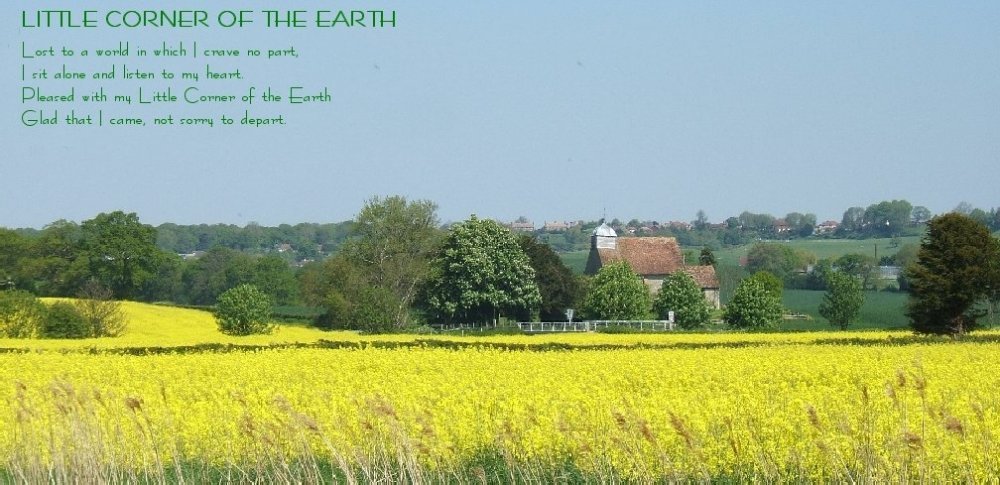On my cycling jaunts over Romney Marsh I like to stop occasionally to ease the posterior and wrists (legs are not too much of a problem due to the electric genie). Cafe stops are for a proper coffee and cake or lunch, but a need to sit down usually means finding a churchyard which has a seat. My days of sitting on the ground are past, once down there getting back up presents difficulties and is less comfortable anyway!
Hence an afternoon stop at Bilsington church. Sitting there, drinking coffee from my flask, I was able to see the field path rising up to the church from the Royal Military Canal below the escarpment. A lady of mature years was making her way through the yellow rape (canola) towards me.
Breathing heavily she approached my seat. "Do you mind company for a bit whilst I get my breath back?" I made room for her beside me. "Would you like some coffee?" (Luckily my flask has two cups, stowed "Russian Doll" manner.)
She was dressed in well used but quality "country " clothes and had an educated accent. "I do this walk every day. It keeps me supple since my son took over the farm and I have more time to myself. Also I can have a look how the crops are coming along." She was widowed, but lived in a bungalow on the farm, now run by her married son.
I had noticed a couple of gravestones with unusual names and asked if she knew their history.
"Ah, the Christmases. All gone now, but they were once local chimney sweeps. He started off with his brushes tied to the crossbar of his bike, but then had a motorbike and sidecar later. The bell? It used to be in the tower but they had to take it out as its wooden frame was getting dangerous. It is cracked anyway so couldn't be rung."
She got up to go. "That's better. Thanks for the drink. If you haven't been inside yet the reredos is unusual and worth a look."
It was, and very poignant too. An eminent judge, with two sons, well educated and started in the legal profession, had had it dedicated when he lost them both in the first few months of World War II. One with the British Expeditionary Force and the other dying from wounds at Dunkirk. Kipling's poem came immediately to mind, although relating to an earlier time.
(click to enlarge)










